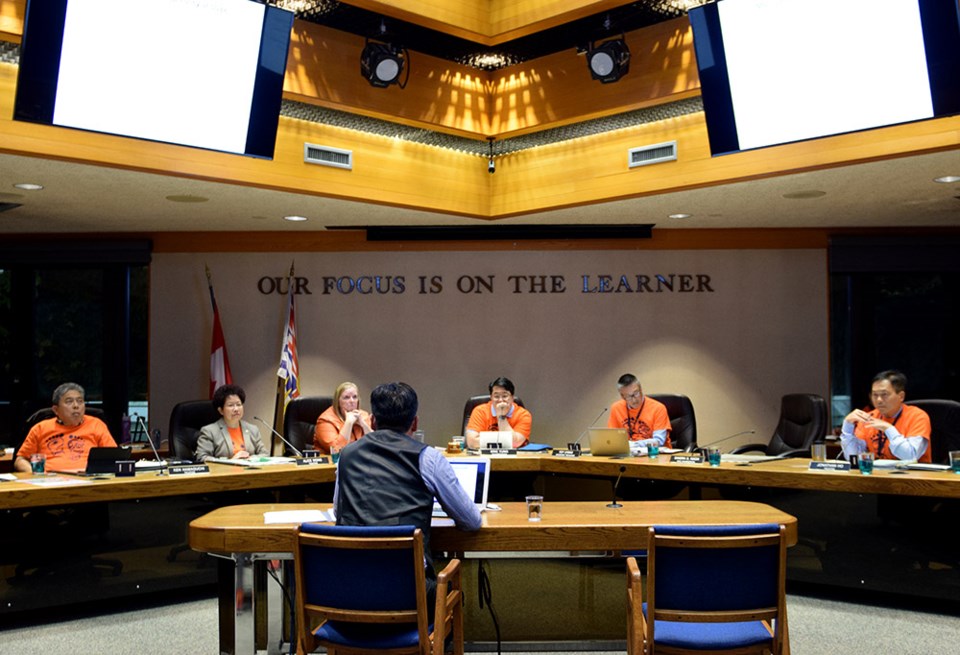From advocacy, to decision-making, to keeping schools rooted in the community, the school trustees are important in many ways, says Mike Roberts, CEO of the BC School Trustees Association.
The Richmond School District has seven trustees, who collectively make up the Richmond Board of Education. They’re elected every four years and are tasked with setting the overall strategic plan for the district at their monthly meetings.
Trustees also determine a school district’s priorities and allocate money they’re given by the province. However, there are restrictions on those decisions since the salaries of teachers and support staff are determined by collective agreements that are negotiated directly between the B.C. Teachers’ Federation and the provincial government.
In years past, school districts were able to levy their own school taxes. But that stopped in the 1970s when school taxes started getting collected provincially in order to spread funds in a more equitable way.
“You can imagine West Vancouver would have … a very high tax base compared to a small community in Northern B.C.,” Roberts said.
The BCSTA advises trustee candidates to have good financial literacy and an understanding of official meeting procedures. They’re expected to put in at least 15 hours of work per week and, in 2016, made a salary of $22,427.
According to Richmond School District documents, trustees made a salary of $22,427 in 2016.
Trustees aren’t allowed to work for the school district they represent, so a Richmond teacher would have to take a leave of absence in order to campaign to be a Richmond school trustee.
Richmond also has a “nice situation,” Roberts said, because it’s the only city in its school district’s boundaries and doesn’t need to balance priorities across a wide geographic area. By contrast, the Prince George school district represents about 20 northern B.C. municipalities.
When it comes to why a school board is necessary, Roberts acknowledged school decisions for the whole province could be made centrally in Victoria. But he said the community would lose its ability to shape its schools and have them reflect its priorities.
“Richmond is different than Hope, which is different from Cranbrook and Fort Nelson and Kelowna,” he said.



